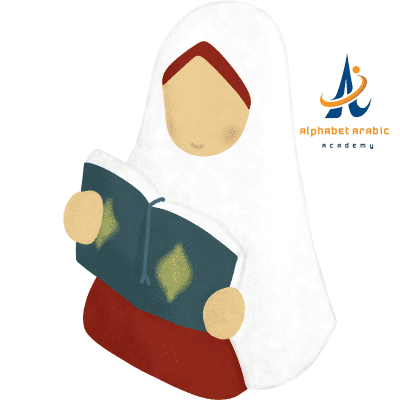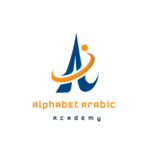Understand Learn Quranic Arabic Basics
To effectively learn Quranic Arabic online, start with mastering the basics. Focus on understanding the Arabic alphabet, pronunciation, and basic grammar rules. This foundational knowledge will enable you to read and comprehend Quranic verses more fluently. At Alphabet Arabic Academy, we provide structured lessons to simplify this journey for beginners of all ages. contact us

Implement Online Study Techniques
Adopting effective online study methods can significantly enhance your learning experience. Dedicate a specific time each day for your studies and create a distraction-free environment. Explore interactive study techniques like flashcards, quizzes, and online exercises that make learning Quranic Arabic both engaging and effective.
Select the Right Online Learn Quranic Arabic Courses
Choosing the right courses is crucial for mastering Quranic Arabic. Look for online Quranic Arabic courses that offer comprehensive content, including tajweed rules, grammar, and vocabulary. At Alphabet Arabic Academy, our courses cater to learners of every level, from beginners to advanced students. These classes provide a structured approach, making it easy to dive into the beauty of the language.
Utilise interactive learning resources.
Interactive tools, such as virtual whiteboards, live sessions, and educational games, can make your Quranic Arabic learning journey more enjoyable. These tools foster active participation, helping you grasp complex concepts with ease while ensuring fun and dynamic teaching methods.
Consistent Practice Routines for Learn Quranic Arabic Online
Consistency is key when learning a new language. Establish a daily routine to practice reading, writing, and reciting. Use exercises to reinforce your understanding of Quranic Arabic language and improve your memory retention. Consistent practice enables learners to build confidence and comprehension.
Join Online Arabic Learning Forums to Learn Quranic Arabic
Engaging with online forums and communities connects you with fellow learners, experienced teachers, and tutors. Platforms like these offer valuable resources, guidance, and motivation as you advance in your studies. The collaborative environment helps deepen your understanding of Quranic concepts.
Utilize Mobile Quranic Apps for Learn Quranic Arabic Online
Mobile apps such as Noorani Qaida, tajweed apps, and Quranic Arabic learning platforms offer flexible and on-the-go learning opportunities. These apps are designed for learners of all levels and include features like vocabulary exercises, tajweed lessons, and videos to reinforce progress. iOS and Android apps provide easy access for Muslims worldwide.
Personalized Learning Approach
Each learner possesses distinct needs. Choose courses that offer a personalized learning experience with options for one-on-one sessions. Alphabet Arabic Academy provides tailored lessons for students of all backgrounds, including kids, male, and female learners, to help them succeed at their level.

Focus on grammar and word selection.
Grammar and vocabulary are essential for understanding the meaning and structure of Quranic verses. Focus on learning sarf (morphology) and nahw (syntax) to comprehend the Qur’an deeply. Our comprehensive courses aim to teach these fundamentals step-by-step, enabling students to master the holy language.
Incorporate Audio-Visual Resources
Audio-visual resources such as video lessons, interactive exercises, and recorded recitations provide dynamic ways to enhance your learning. Listening to native speakers recite Quranic verses improves your pronunciation, tajweed skills, and memorization techniques.
Learning with Tutors Remotely
Remote learning with qualified tutors offers personalized guidance and immediate feedback. At Alphabet Arabic Academy, our experienced teachers focus on creating an engaging and interactive learning experience for all students. Learn Quranic Arabic at your own pace with expert support.
Track progress and implement alterations.
Monitor your progress regularly to spot areas needing improvement. Adjust your study plan to focus on weaker areas, ensuring continuous advancement in your Quranic Arabic studies. Progress monitoring helps students achieve their learning goals effectively.
Partake in Considerate Contemplation
Reflecting on the beauty and meaning of the Qur’an deepens your connection to the text. Engage in thoughtful reflection to make your learning journey more meaningful and spiritually enriching. Thoughtful reflection helps learners truly comprehend the holy verses and their significance.
FAQs
What is Quranic Arabic?
The form of Arabic found in the Quran, Islam’s holy book, is known as Quranic Arabic. It is a classical language that helps Muslims understand the divine message.
What is the duration to learn Quranic Arabic?
The time varies; however, regular practice and guidance from tutors can lead to significant progress within months. Beginners and advanced students alike can benefit from structured lessons.
Are any free learning materials available?
Yes, many online platforms and apps offer free resources for learning Quranic Arabic, including videos, lessons, and exercises.
Is it possible for children to learn Quranic Arabic through online resources?
Absolutely, there are tailored courses for kids of all ages. At Alphabet Arabic Academy, we provide interactive lessons designed to make learning fun and easy for children.
Must one possess prior knowledge of Arabic?
No, beginners can start without prior knowledge of Arabic. Our courses are designed to teach Quranic Arabic from basic to advanced levels.
At Alphabet Arabic Academy, we offer affordable and engaging online Quranic Arabic courses for learners worldwide. Whether you’re just starting or seeking to enhance your skills, we offer the resources, support, and tailored instruction you require. Visit us at alphabetarabicacademy.com Visit our website and begin your journey today. Connect with us on our social media channels for updates and learning tips!
source1:
https://alphabetarabicacademy.com/quran-online-for-beginners-and-advanced/
https://alphabetarabicacademy.com/how-to-learn-quran-fast/
https://alphabetarabicacademy.com/learn-quran-online/
source2:
https://www.alazharquranteaching.com/quranic-arabic-course/
https://al-dirassa.com/en/free-quranic-arabic-language-online-courses

